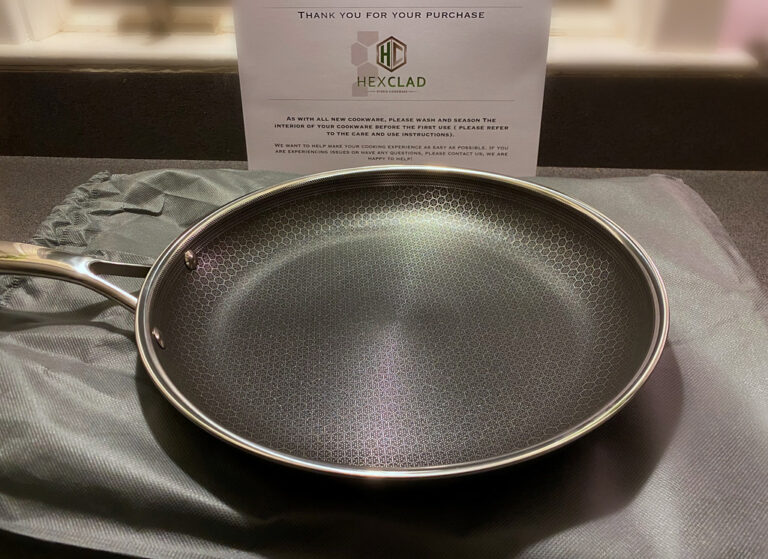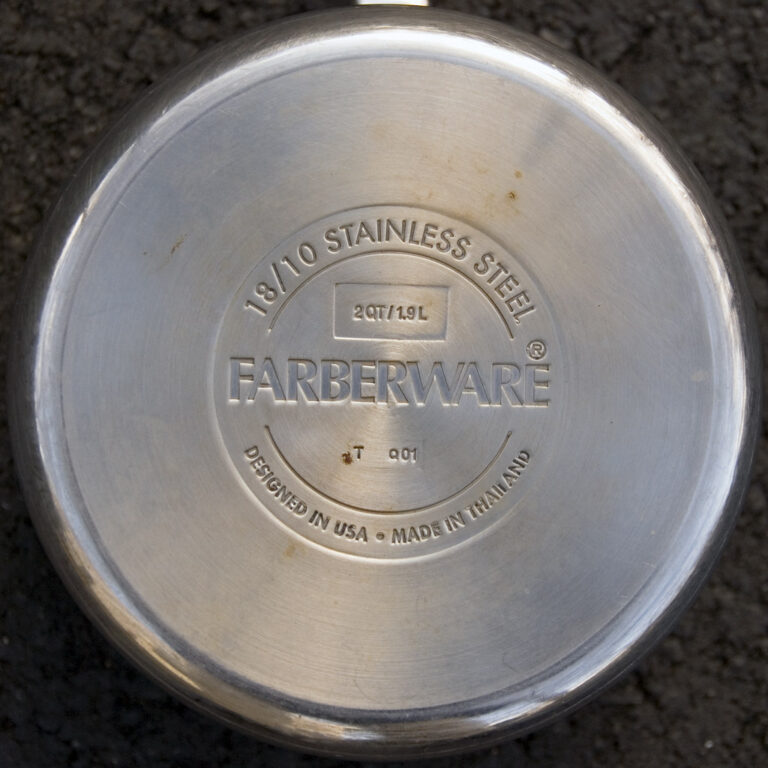Do you know the importance of iron in your diet? Are you experiencing signs and symptoms of iron deficiency?
Discover how cast iron pans play a crucial role in absorbing iron. Learn how to properly season and care for your cast iron pan, as well as cooking tips to maximize your iron intake.
Explore other iron-rich foods that pair perfectly with your cast iron cooking.
Let’s address common concerns and misconceptions about cast iron pans and their impact on iron deficiency.
Key Takeaways
- Iron is crucial for overall health and well-being, as it carries oxygen to all parts of the body and helps in the production of red blood cells.
- Iron deficiency can lead to fatigue, weakness, and difficulty concentrating, as well as weaken the immune system and affect cognitive function.
- Cast iron pans are an excellent source of dietary iron, as cooking in them transfers small amounts of iron to the food.
- There is no evidence to suggest that cast iron pans contribute to iron deficiency, and using them can actually increase dietary iron intake.
The Importance of Iron in Our Diet
You need to understand the importance of iron in your diet. Iron is a crucial mineral that plays a vital role in your overall health and well-being. It is responsible for carrying oxygen to all parts of your body and helps in the production of red blood cells. Without enough iron, you may experience fatigue, weakness, and difficulty concentrating.
Iron also supports your immune system, helping you fight off infections and illnesses. It is particularly important for women, as they lose iron during menstruation. Including iron-rich foods such as lean meats, poultry, fish, legumes, and dark leafy greens can help meet your daily iron needs. Remember to pair these foods with vitamin C sources like citrus fruits or bell peppers to enhance iron absorption.
Ensuring adequate iron intake will keep you energized and maintain optimal health.
Signs and Symptoms of Iron Deficiency
Iron deficiency is a common issue that can have a significant impact on your health. When your body lacks enough iron, it isn’t able to produce sufficient hemoglobin. This leads to a decrease in oxygen-carrying capacity.
This can result in symptoms such as fatigue, weakness, shortness of breath, and even impaired cognitive function.
Common Iron Deficiency
One of the most common symptoms of iron deficiency is fatigue. You may find yourself feeling tired and lacking energy, even after a good night’s sleep. But did you know that there are other signs of iron deficiency as well? Take a look at this table to learn more about the common symptoms:
| Symptom | Description |
|---|---|
| Pale skin | Your skin may appear pale or have a yellowish tint |
| Weakness | You might feel weak and have difficulty performing daily tasks |
| Shortness of breath | You may experience difficulty breathing, especially during physical activity |
If you’re experiencing any of these symptoms, it’s important to speak with your healthcare provider. They can perform tests to determine if you have an iron deficiency and recommend appropriate treatment options. Remember, taking care of your iron levels is essential for maintaining overall health and wellbeing!
Impact on Health?
If you’re wondering about the impact of iron deficiency on your health, it’s important to understand that it can lead to a range of symptoms and complications. Iron plays a crucial role in your body, helping transport oxygen and supporting overall energy levels.
When you don’t have enough iron, you may experience fatigue, weakness, and shortness of breath. Iron deficiency can also affect your cognitive function, causing difficulty concentrating and impacting your memory. Additionally, it can weaken your immune system, making you more susceptible to infections and illnesses.
Women with iron deficiency may face menstrual irregularities or heavy periods. In severe cases, iron deficiency anemia can develop, leading to pale skin, brittle nails, and increased heart rate. It’s essential to address iron deficiency promptly through dietary changes or supplements to prevent further health complications.
Understanding the Role of Cast Iron Pans in Iron Absorption
To maximize iron absorption, you should consider using a cast iron pan when cooking. Cast iron pans have been found to be an excellent source of dietary iron. When you cook food in a cast iron pan, small amounts of iron are transferred to the food during the cooking process.
This can help increase your body’s intake of this essential mineral. The high heat and prolonged cooking times associated with cast iron pans also contribute to the release of more iron into the food.
Additionally, using a cast iron pan can enhance the flavor and texture of your dishes, making them even more enjoyable to eat. So next time you’re preparing a meal, reach for that trusty cast iron pan and give your body an extra boost of much-needed iron!
How to Season and Care for Your Cast Iron Pan
When seasoning and caring for your cast iron pan, it’s important to avoid using harsh detergents or scrubbing pads that could damage the nonstick surface. Instead, opt for gentle cleaning methods to maintain the longevity of your pan.
Start by rinsing the pan with hot water immediately after use. Use a soft sponge or brush to remove any food residue. Avoid using soap as it can strip away the seasoning on your pan. If there are stubborn bits stuck on the surface, you can add a small amount of coarse salt and gently scrub with a paper towel.
After cleaning, make sure to thoroughly dry your pan to prevent rusting. Lastly, apply a thin layer of oil before storing to keep your cast iron seasoned and ready for use next time.
Cooking Tips to Maximize Iron Intake With Cast Iron Pans
For maximum iron intake, it’s important to cook acidic foods like tomatoes or citrus fruits in your seasoned cast iron. When cooking with acidic ingredients, the natural acidity of these foods helps to enhance the iron absorption from the pan into your food.
The acid reacts with the iron surface, causing a small amount of iron to leach into your meal. This can be especially beneficial for individuals who are at risk of iron deficiency or require increased dietary iron intake.
Exploring Other Iron-Rich Foods to Pair With Your Cast Iron Cooking
Pair your seasoned cast iron with other iron-rich foods like spinach, lentils, and beef to further boost your dietary iron intake. By incorporating these foods into your meals, you can ensure that you are getting a significant amount of iron from both your cooking utensil and the ingredients you use.
Spinach is especially high in iron and can easily be sautéed or added to dishes cooked in your cast iron pan. Lentils are another great option, as they not only provide a good source of vegetarian protein but are also packed with iron. And don’t forget about beef! It’s a delicious way to increase your dietary iron intake while enjoying a hearty meal cooked in your trusty cast iron pan.
Addressing Common Concerns and Misconceptions About Cast Iron Pans and Iron Deficiency
If you’re worried about the potential health risks associated with using cast iron pans, it’s important to note that there is no evidence to suggest that they contribute to iron deficiency.
Many people have concerns that cooking with cast iron may lead to an excess intake of iron or cause an imbalance in their iron levels. However, research has shown that while trace amounts of iron can be transferred from the pan into food, it is not enough to cause any significant impact on your overall iron status.
In fact, cooking with cast iron can even help increase your dietary intake of this essential mineral, which is especially beneficial for individuals who are at risk of or already have low iron levels.
Conclusion
In conclusion, taking care of your cast iron pan can not only enhance your cooking experience but also contribute to maintaining proper iron levels in your body. By seasoning and regularly using your cast iron pan, you can increase the amount of iron absorbed from your food.
Remember to pair your cast iron cooking with other iron-rich foods for maximum benefit. Don’t let misconceptions hold you back – embrace the power of cast iron pans in preventing iron deficiency and enjoy delicious meals along the way!


